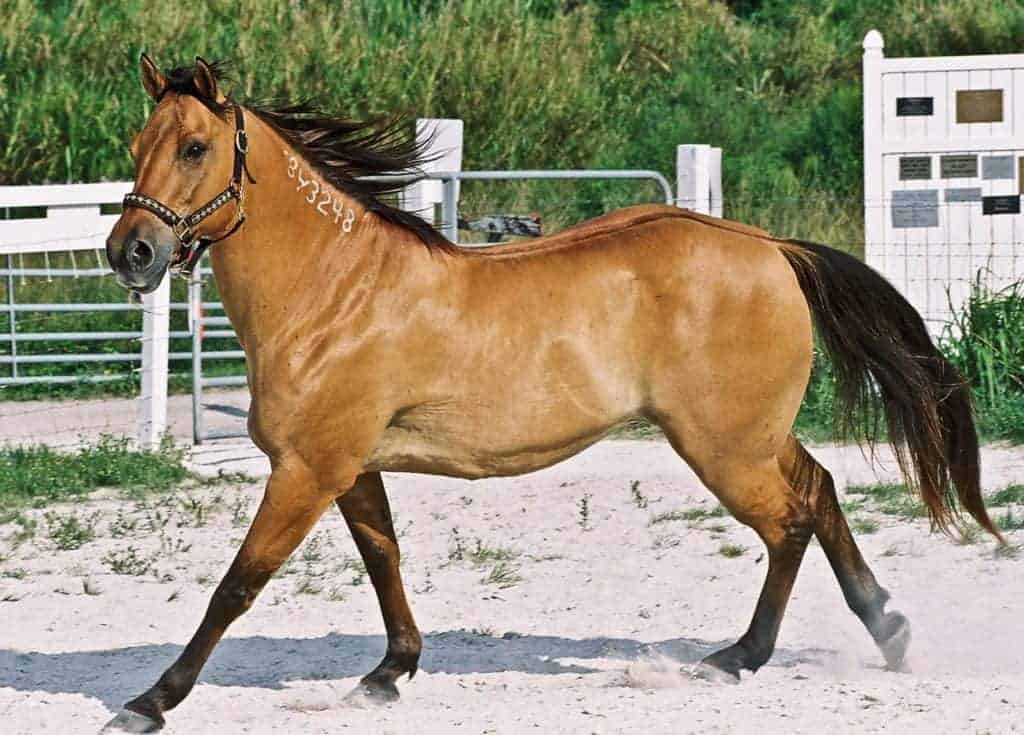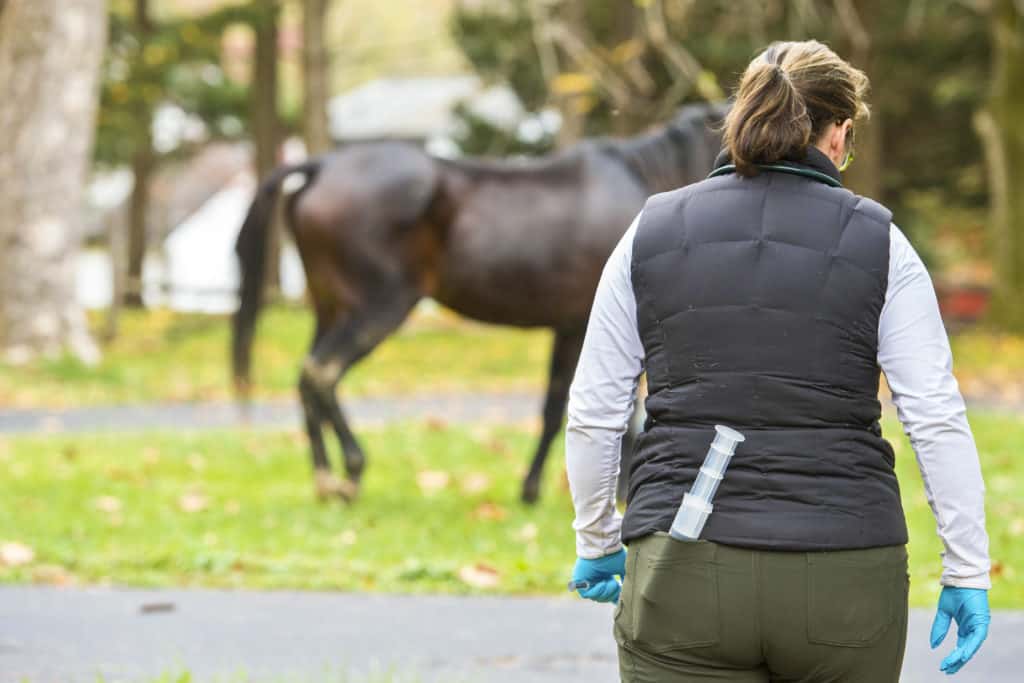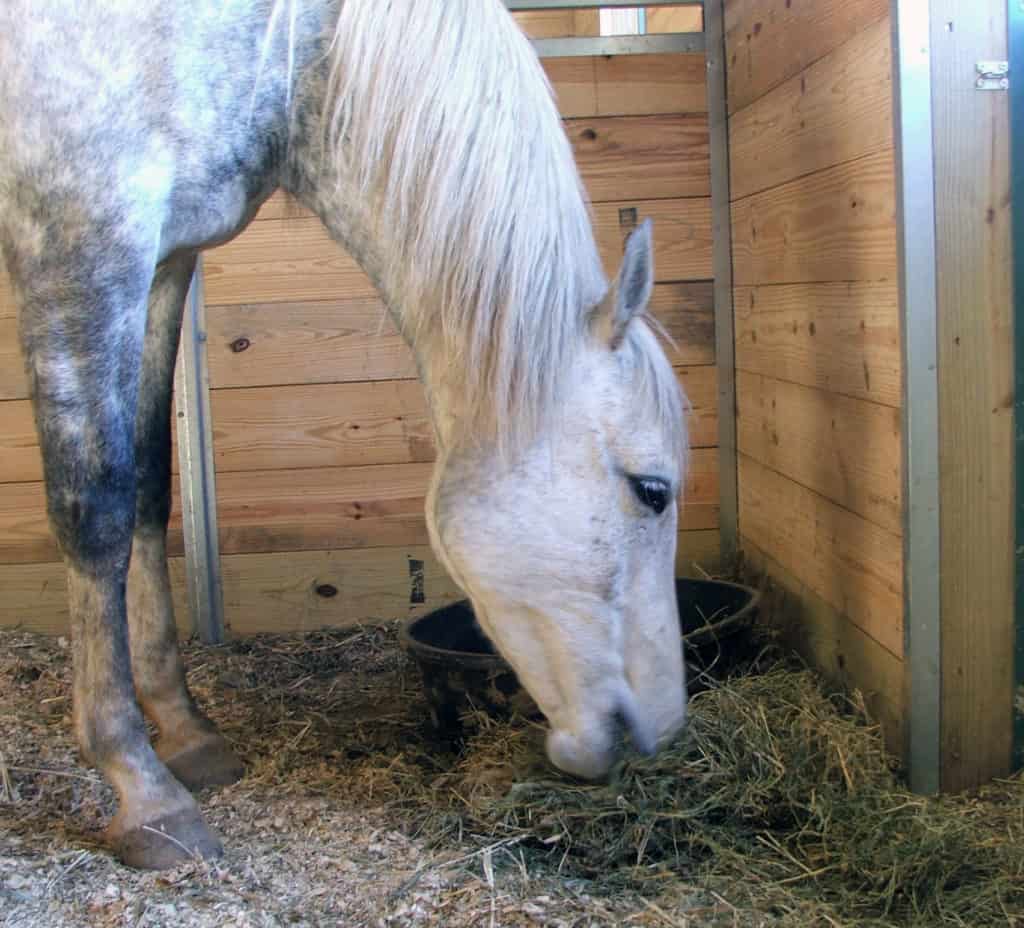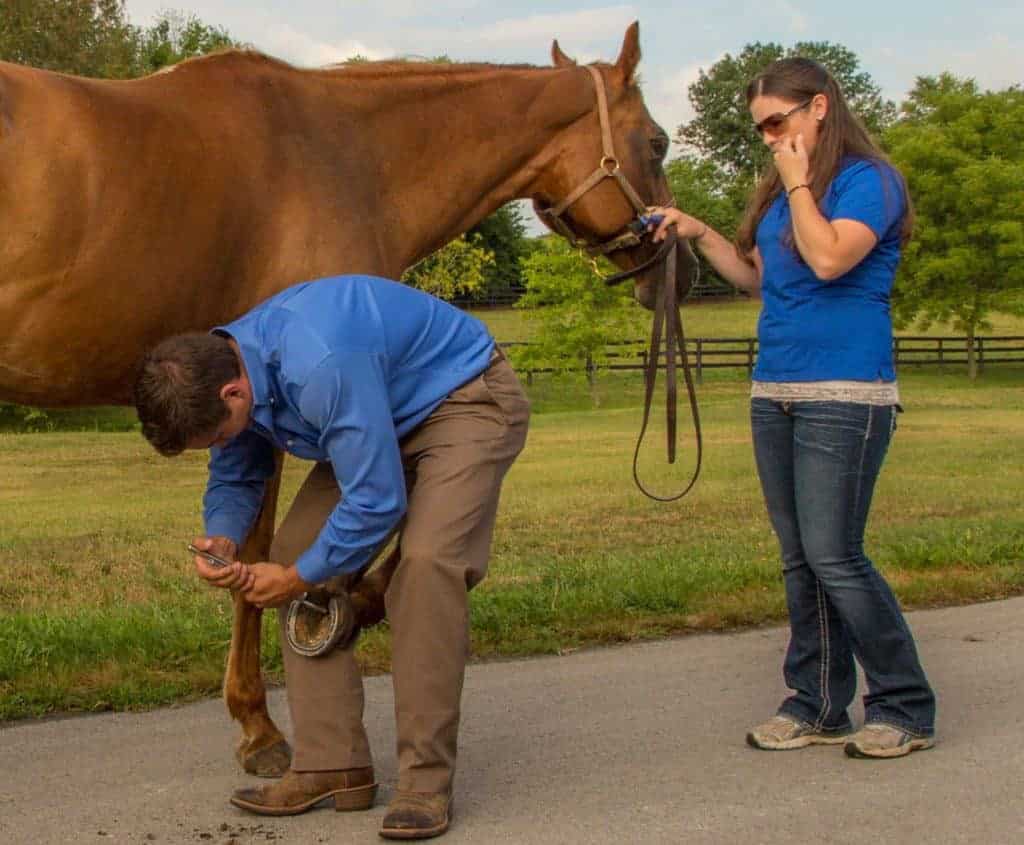
The Vet Tech’s Role in Stallion Semen Collection
A well-educated, trained, and reliable technician is invaluable to ensure things are in order and running smoothly. It makes a veterinarian’s day and the semen collection process much easier.

A well-educated, trained, and reliable technician is invaluable to ensure things are in order and running smoothly. It makes a veterinarian’s day and the semen collection process much easier.

The veterinary technician is often the primary staff member responsible for overseeing recovery from anesthesia.

There’s not one particular approach for rehabilitating injured joints. Here are a few of the options vets have to use.

Veterinary technicians make important contributions before, during, and after colic surgery. Here’s how they help veterinarians and surgeons during these potentially life-saving procedures.

Find out where veterinarians are seeing an uptick in equine infectious anemia cases.

Issues of mental health, well-being, and suicide among vets are important ones that veterinary organizations worldwide have made a priority.

Read some of the top tweets and take-homes on topics such as lameness, equine obesity, laminitis, and more from the 2018 British Equine Veterinary Association Congress.

Taylor Equine Hospital assistant Ali Harman’s dream job involves clinic cases, farm calls, and foal watch.

Work-life balance for the equine veterinarian who’s also a parent requires planning, patience, good boundaries, and in many cases, a flexible employer. To help, four U.K. vets launched an initiative called MumsVet in 2016.

A brief period of fasting prior to omeprazole administration could help maximize drug absorption and, thus, efficacy.

Find out how equine researchers are using the latest gadgets and gizmos to diagnose lameness, collect data, and more.

An automated feeder that provides grain in multiple small meals throughout the day might help reduce the prevalence of gastric ulcers in horses in training.

Horse are especially sensitive to endotoxemia. To address the issue, Dr. Stacy Anderson of Lincoln Memorial University, in Harrogate, Tennessee, presents her research on neutrophil apoptosis (the death of cells that occurs as a normal and controlled part of an organism’s growth or development) in horses.

Horse health care often requires teamwork. Use these tips to find the right equine health professionals for your team.

Two veterinarians share what has remained the same and what’s changing when it comes to diagnosing and treating this frustrating condition, once known as navicular. Read an excerpt from this in-depth article in our July 2018 issue.

New research suggests that herders developed veterinary dentistry in Mongolia and eastern Eurasia more than 3,000 years ago.
Stay on top of the most recent Horse Health news with
"*" indicates required fields